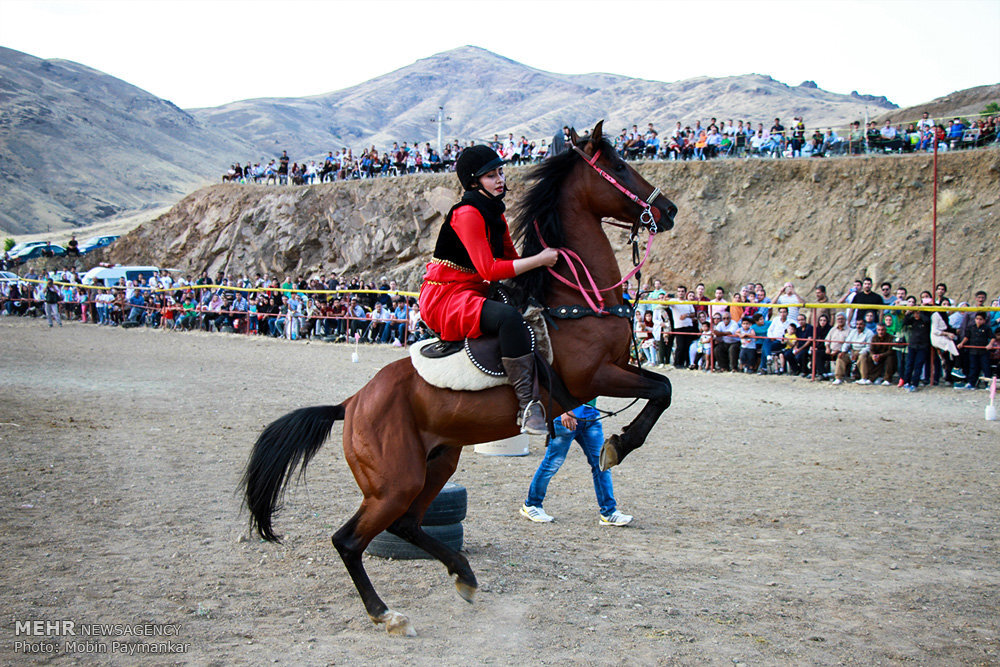Kurd horses compete in a beauty pageant in Kermanshah

TEHRAN – Tens of Kurd horses will participate in a beauty pageant in Kermanshah, as part of a two-day festival dedicated to that medium size breed with withers height ranging from 140 to 155 cm.
This event is a very good opportunity to promote the Kurd horse as a pure breed whose birthplace is in Kermanshah, a local tourism official said on Monday.
Planning to launch the economic cycle of the horse breeding industry in the province and increase its added value as well as the commercialization of Kurdish horses are among the goals that the festival pursues, the official added.
The festival will be held on July 6 and 7.
Earlier this year, that Persian-Kurdish horse gained a place on the National Intangible Cultural Heritage list.
Last December, the provincial tourism department announced that Iran was developing a dossier for its Persian-Kurdish horse for a possible inscription on the UNESCO World Heritage list.
Despite the Kurd horse’s origin going back to the western Iranian province of Kermanshah, it may be registered internationally because it is also bred in the Kurdish regions of Iraq, Turkey and Syria, the department said.
Persian-Kurdish horse constitutes a group of horses traditionally bred and used by Kurdish People who have lived and occupied today’s western provinces of Iran for several millennia.
The breed originates from western Iran, where the mountainous topography and moderately cold climate have sculpted a unique horse population resistant to harsh environmental conditions.
Kermanshah embraces a variety of awe-inspiring historical sites, including Taq-e Bostan and the UNESCO-registered Bisotun.
Inscribed into the base of a towering cliff, Taq-e Bostan comprises extraordinary Sassanian bas-reliefs of ancient victorious kings to divide opinions. Late afternoon is the best time to visit, as the cliff turns a brilliant orange in the setting sun, which then dies poetically on the far side of the duck pond.
Bisotun is a patchwork of immense yet impressive life-size carvings depicting King Darius I and several other figures. UNESCO has it that Bisotun bears outstanding testimony to the important interchange of human values in the development of monumental art and writing, reflecting ancient traditions in monumental bas-reliefs.
AFM
Leave a Comment